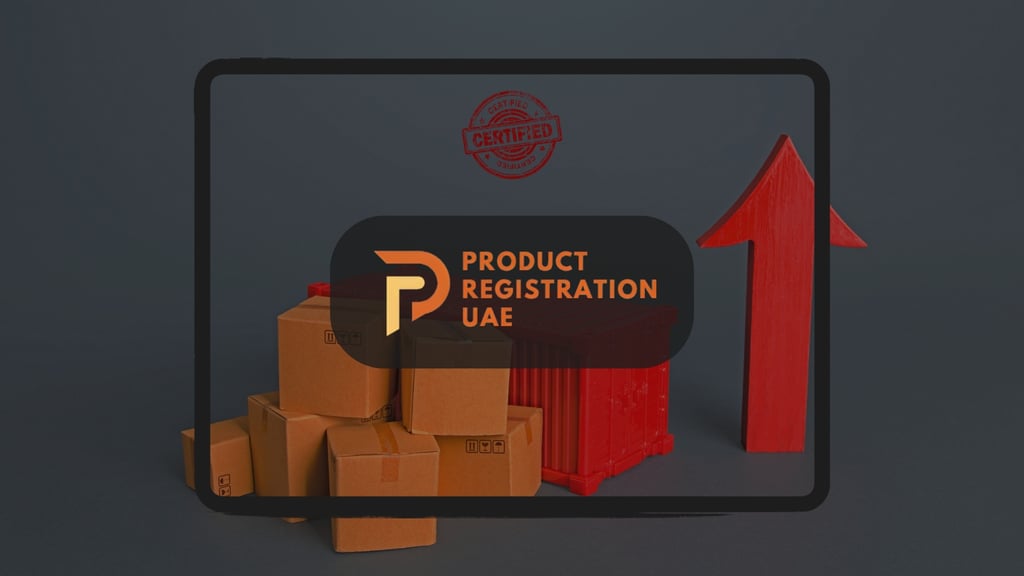What Is Certificate of Free Sale?
Discover why the Certificate of Free Sale (CFS) is essential for UAE product registration and how to meet export compliance. | Product Registration UAE


What Is a Certificate of Free Sale (CFS) and Why Does UAE Require It? (2025 Guide)
If you’re registering food, supplements, or cosmetics in the UAE, the Certificate of Free Sale (CFS) is one of the most important documents you’ll need.
But what exactly is it — and why do UAE authorities insist on it? This guide answers the most common questions and shows how to avoid delays in 2025.
What Is a Certificate of Free Sale (CFS)?
A Certificate of Free Sale is an official government-issued document confirming that your product is legally sold in the country where it’s manufactured.
It proves that your product is not experimental or restricted in its home market.
In simple terms: If you can legally sell it in your country, the UAE may consider it for registration.
Who Issues a CFS?
The CFS must be issued by a government authority or a recognized trade organization in your country of origin. This varies by country:
USA: FDA or Chamber of Commerce
UK: Department for Business and Trade
EU: Competent health or trade authority
India: Ministry of Commerce or FSSAI (for food)
Private companies or manufacturers cannot issue valid CFS documents on their own.
Which UAE Authorities Require a CFS?
The CFS is mandatory for most registrations with:
MOHAP – for supplements and health products
Dubai Municipality (Montaji or ZAD) – for food, beverages, and cosmetics
ESMA/Emirates Council for Standardization – for regulated categories
Even if your product passes testing and labeling checks, it cannot be approved without a legalized CFS.
Why Does the UAE Require a CFS?
✅ Verifies your product is legally sold abroad
✅ Protects consumers from unapproved or experimental goods
✅ Confirms your manufacturing country has cleared the product for market
✅ Supports fast-track customs clearance and product approval
In short: No CFS, no entry.
Do All Products Require a CFS?
Yes, in most cases. Unless your product is manufactured locally in the UAE or already certified under special free zone rules, you’ll need a CFS for:
Nutritional and dietary supplements
Processed foods and beverages
Cosmetics and personal care
Household and cleaning products
What Are the Legalization Requirements?
Your CFS must be:
Issued by the country of origin authority
Attested by the local Ministry of Foreign Affairs
Legalized at the UAE embassy or consulate
Stamped by UAE’s Ministry of Foreign Affairs (MOFA) upon arrival
Some authorities also request Arabic translations of the CFS.
Common Mistakes That Cause CFS Rejection
❌ Submitting a non-government-issued certificate
❌ Missing legalization or stamps
❌ Using an expired CFS (older than 6 months)
❌ No batch or product detail mentioned
❌ Untranslated certificates
Even if everything else in your application is correct, an invalid CFS will block your approval.
How Long Does It Take to Get a CFS?
Issuance: 5–15 working days (depending on the country)
Legalization: 2–3 weeks (including MOFA + Embassy)
Start this early in your product registration process — delays here can delay everything.
How Product Registration UAE Helps with CFS Compliance
We ensure your CFS is:
Properly issued by an accepted body
Fully legalized through all required channels
Translated and certified if needed
Valid, current, and submission-ready
We also audit your full document set to prevent costly submission errors.
Continue Reading
View the full UAE Product Registration Document Checklist
Learn how to Register Food & Supplements Through MOHAP
Navigating UAE Product Registration Trends in 2025
Understand the consequences of non-compliance in our detailed guide on UAE product registration penalties.
If you’re preparing your product for approval, don’t miss this guide on avoiding costly product rejections in the UAE.
Still unsure if your CFS meets UAE standards?
Contact us or use the chatbot in the bottom-right corner for fast help.


